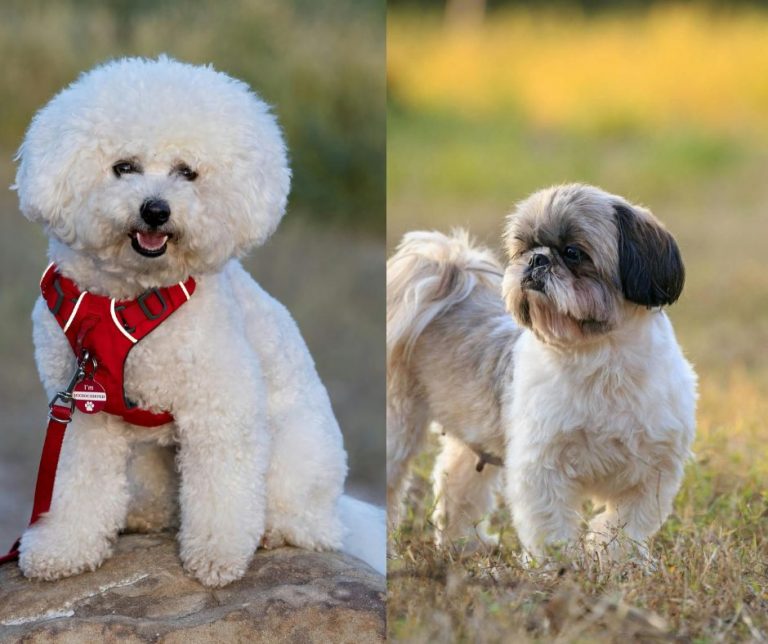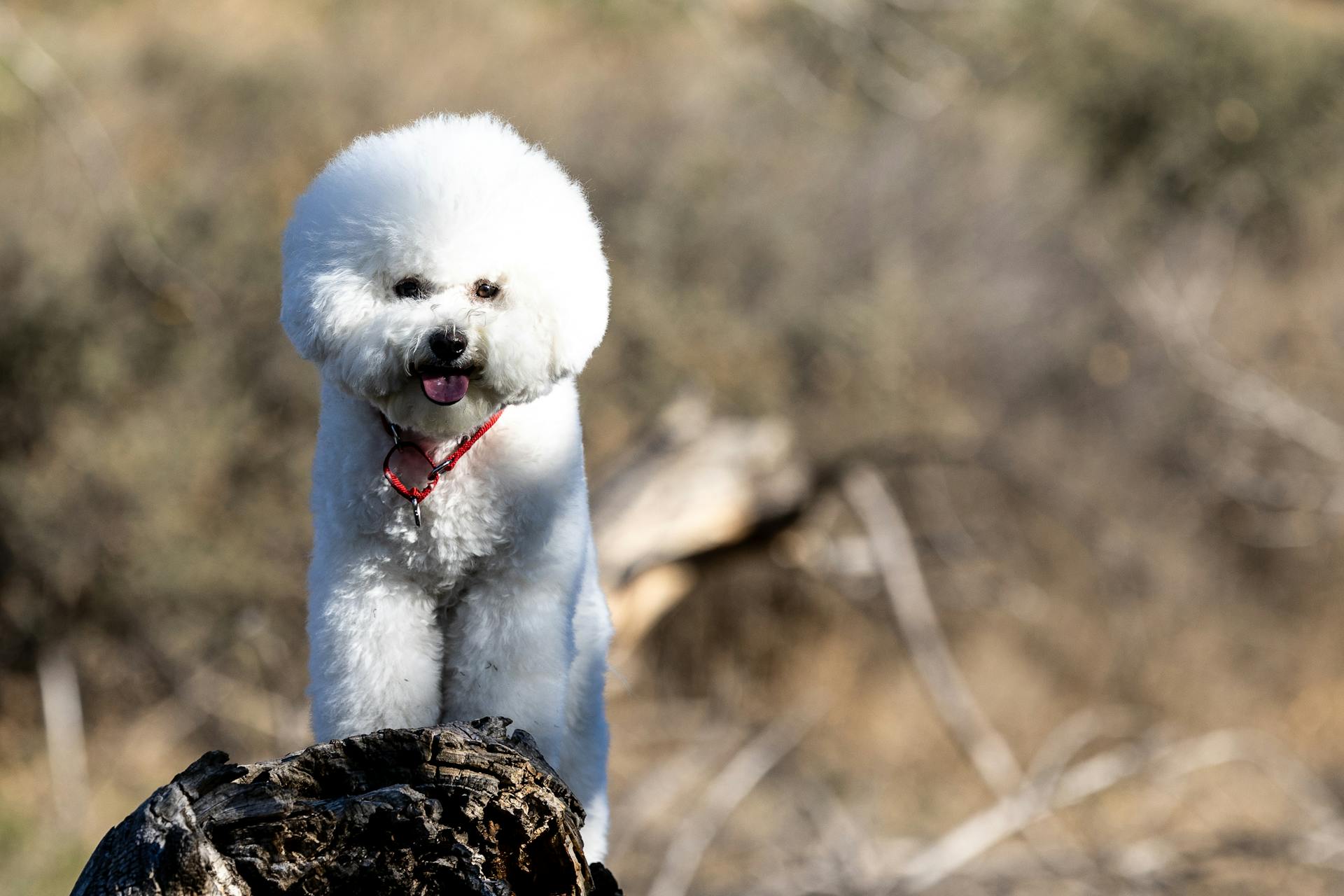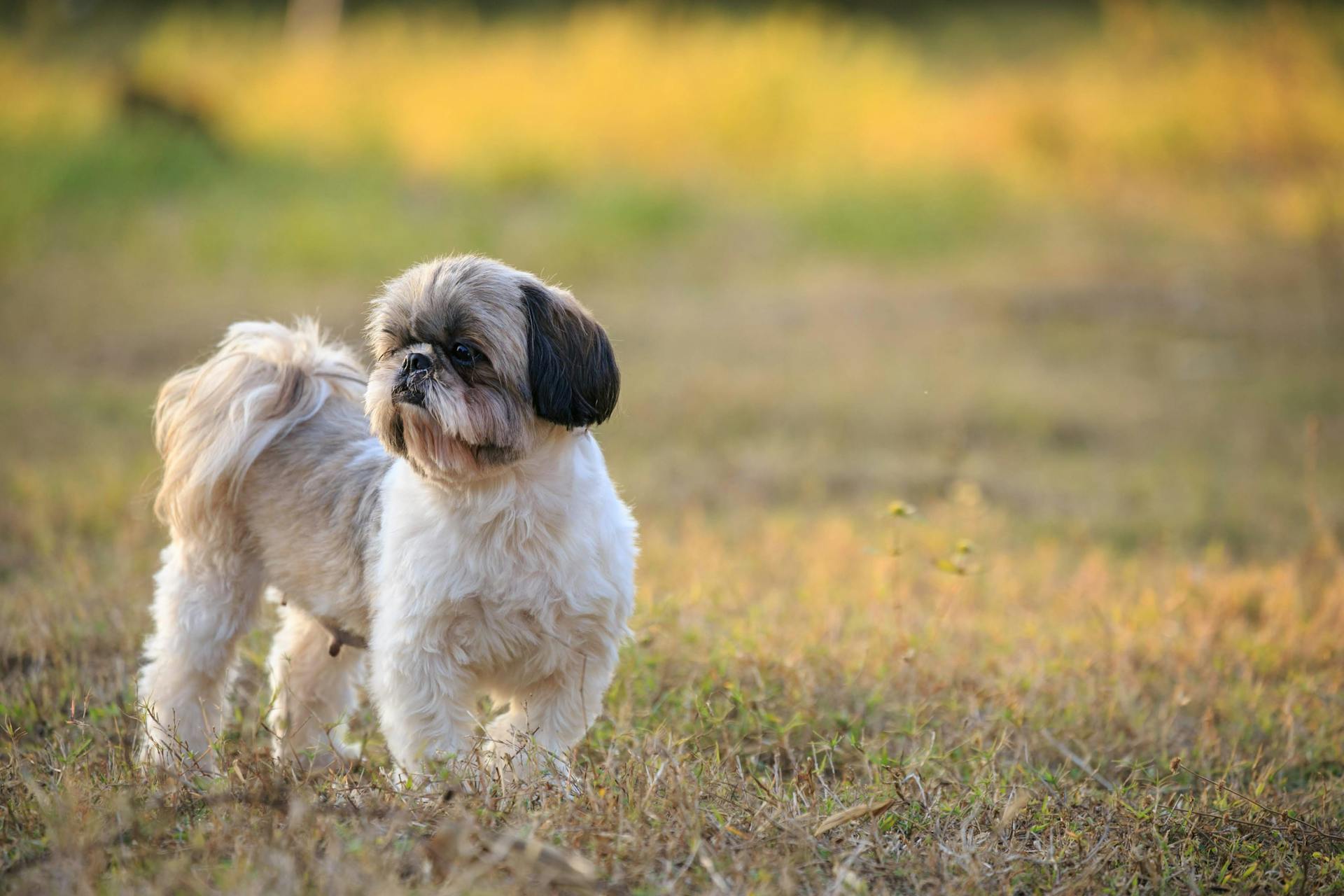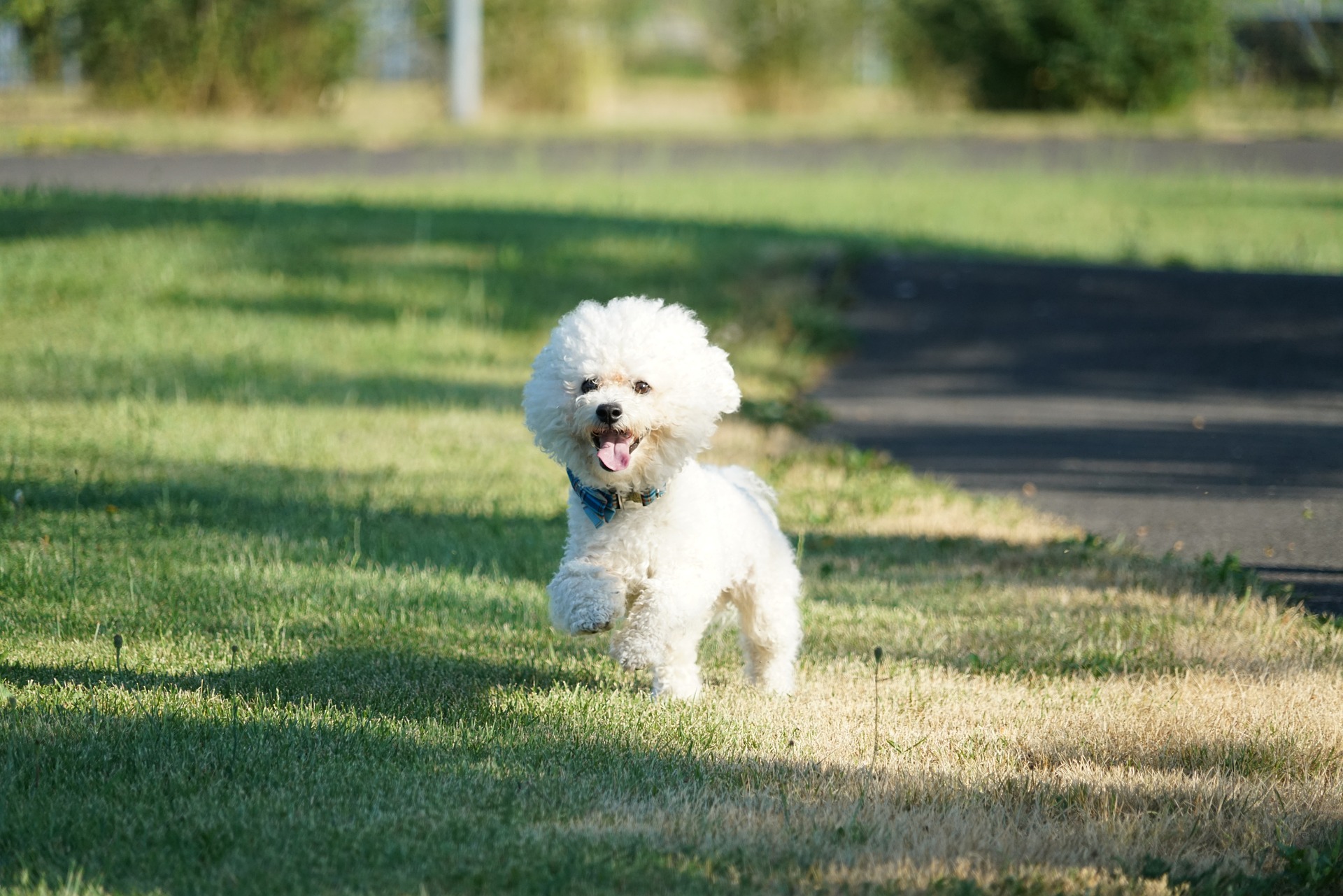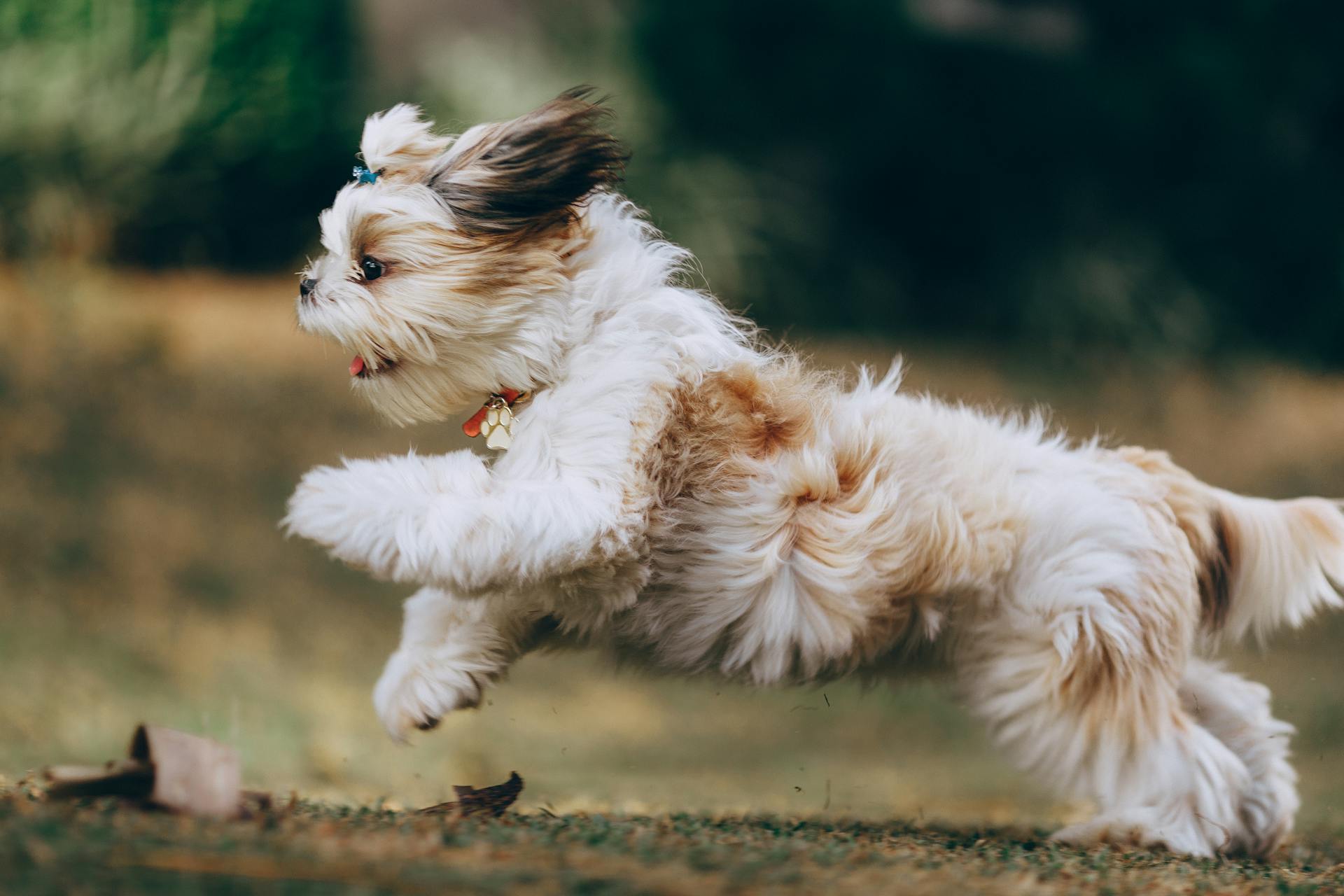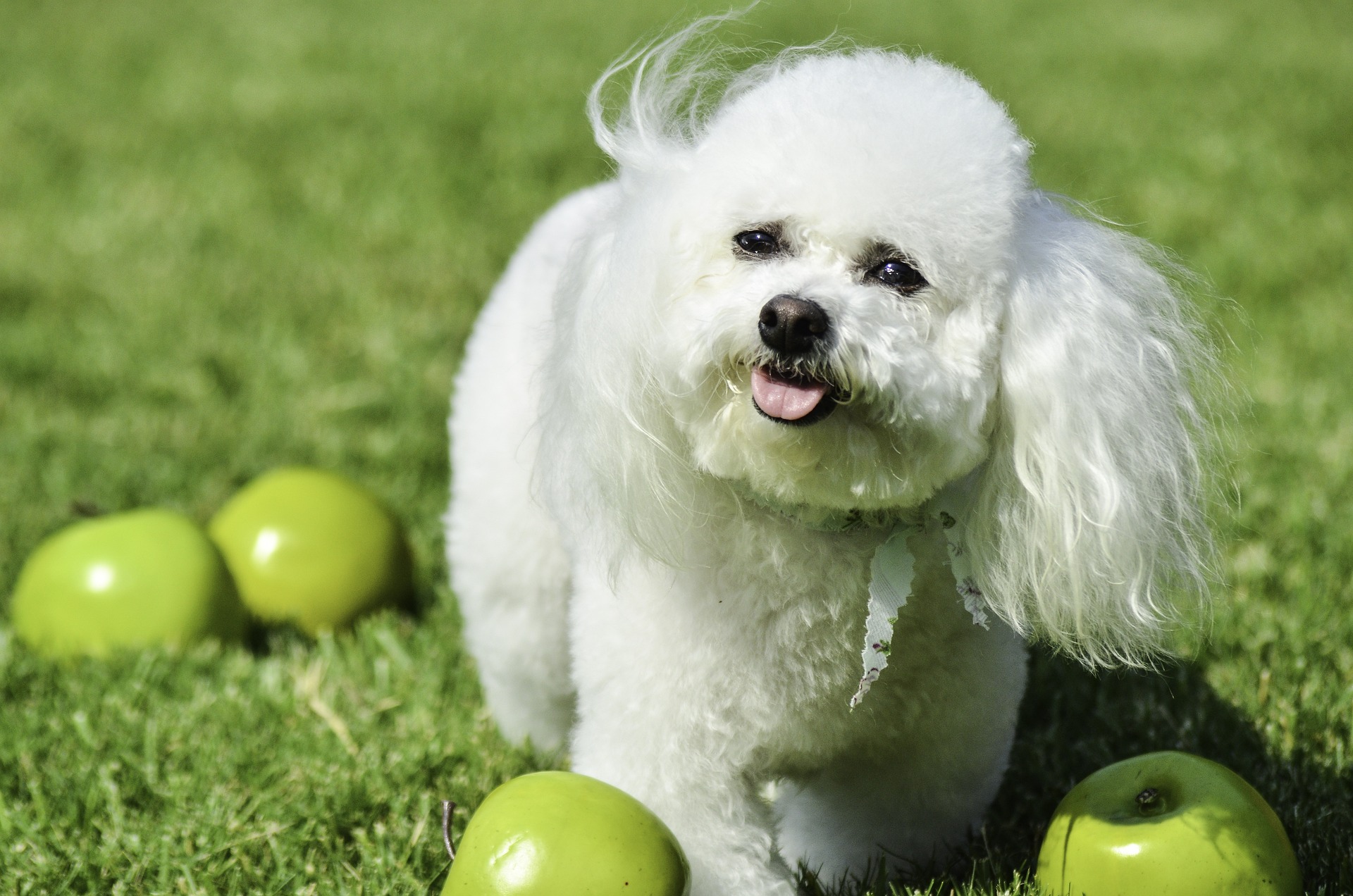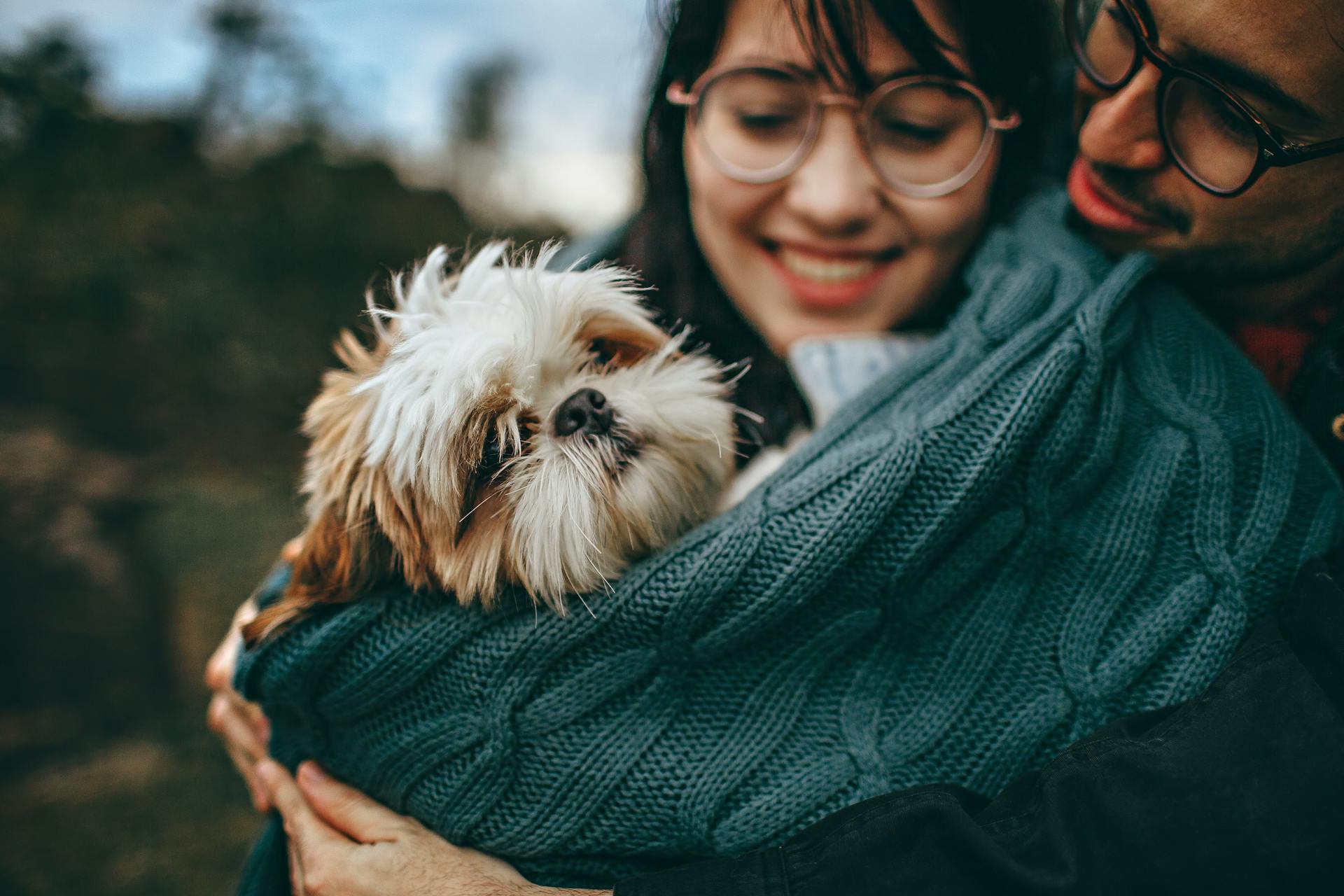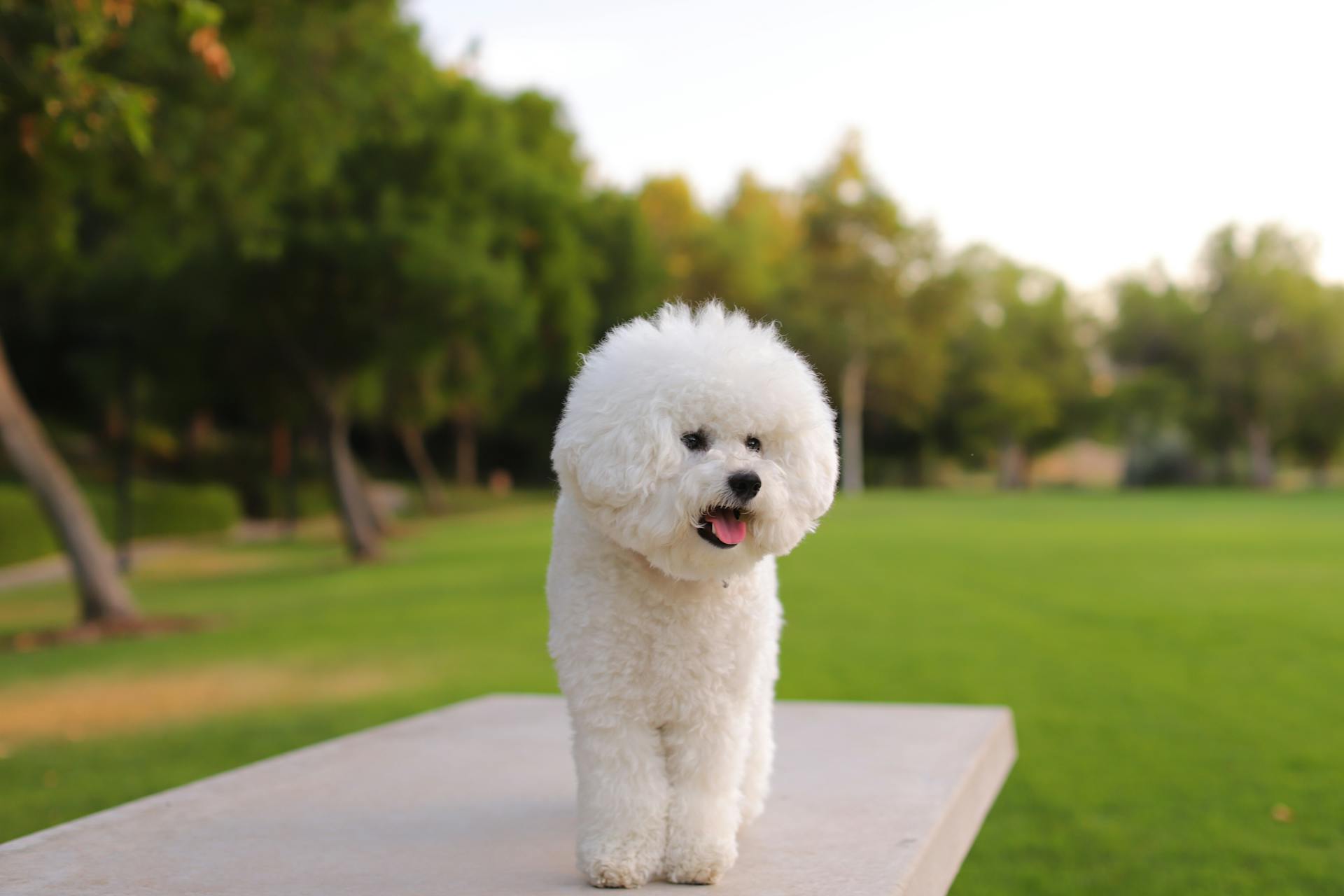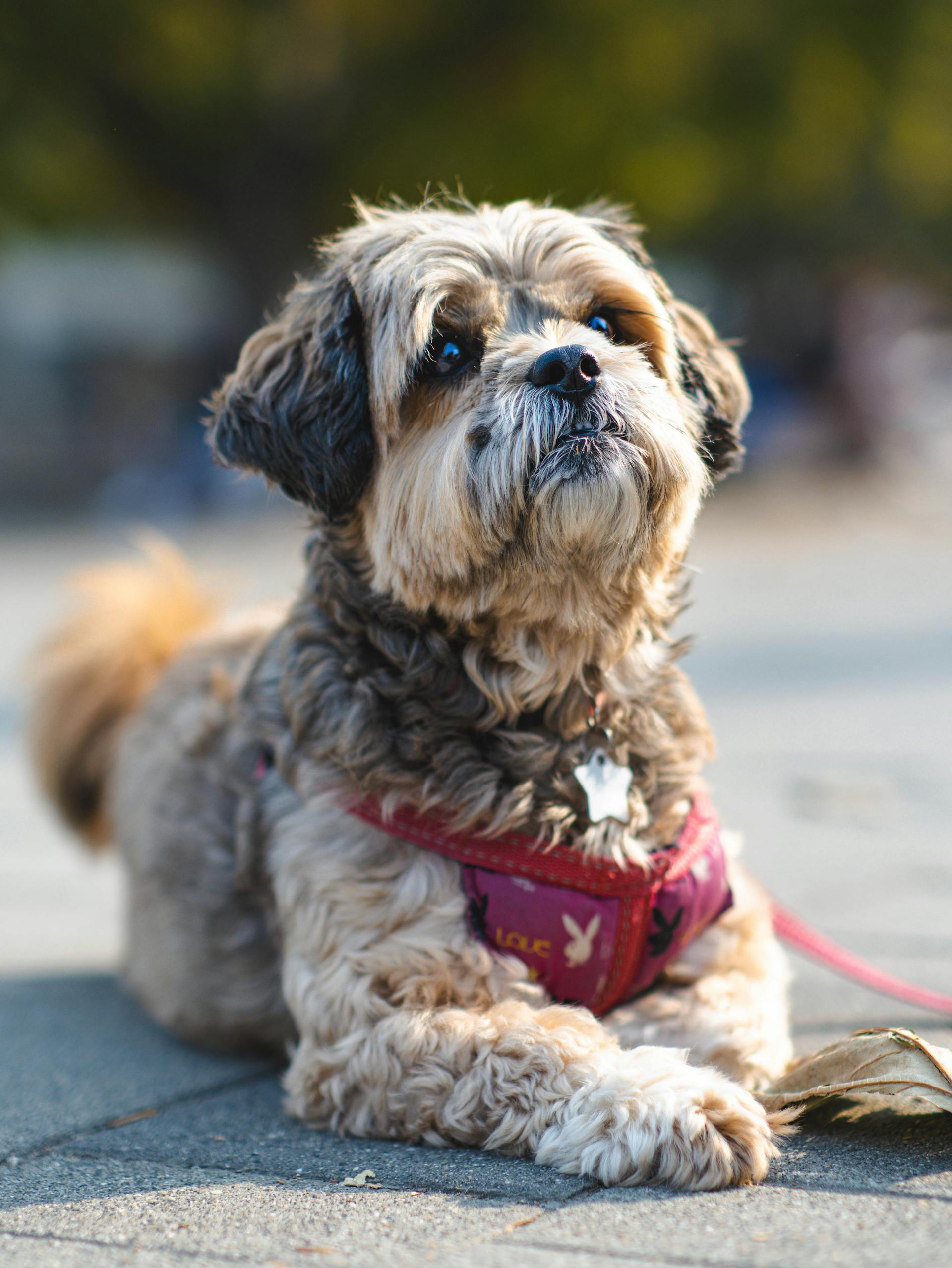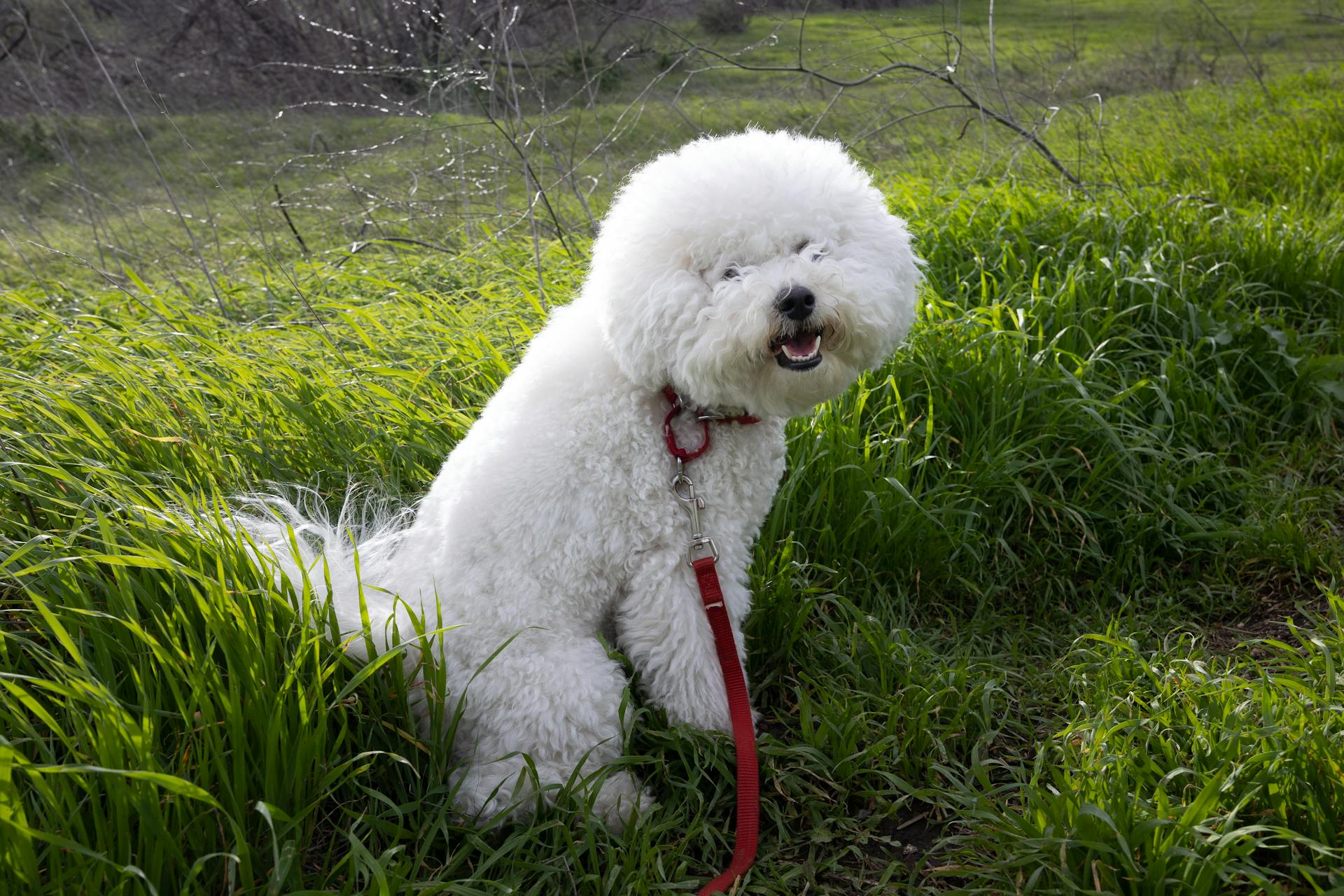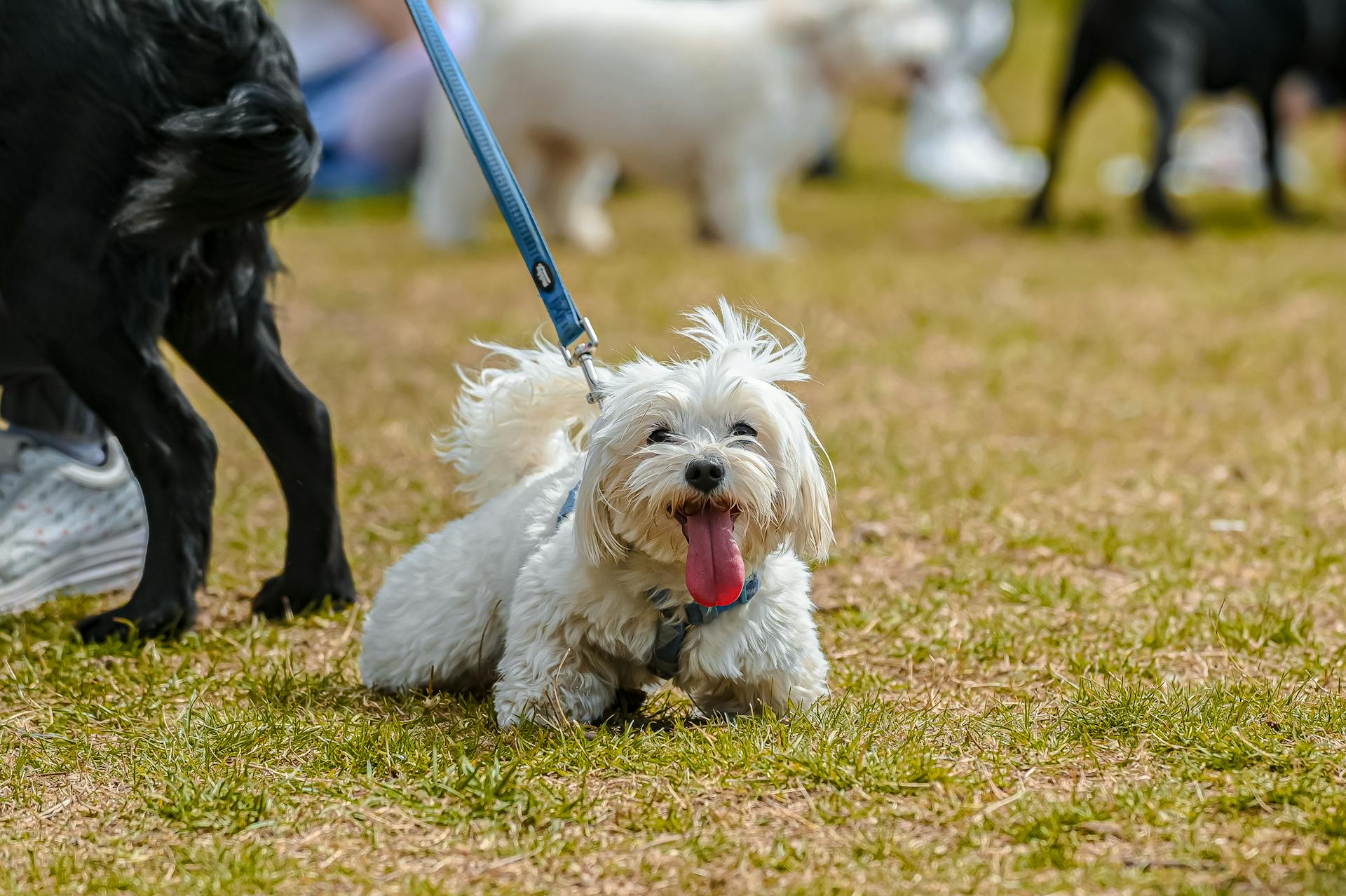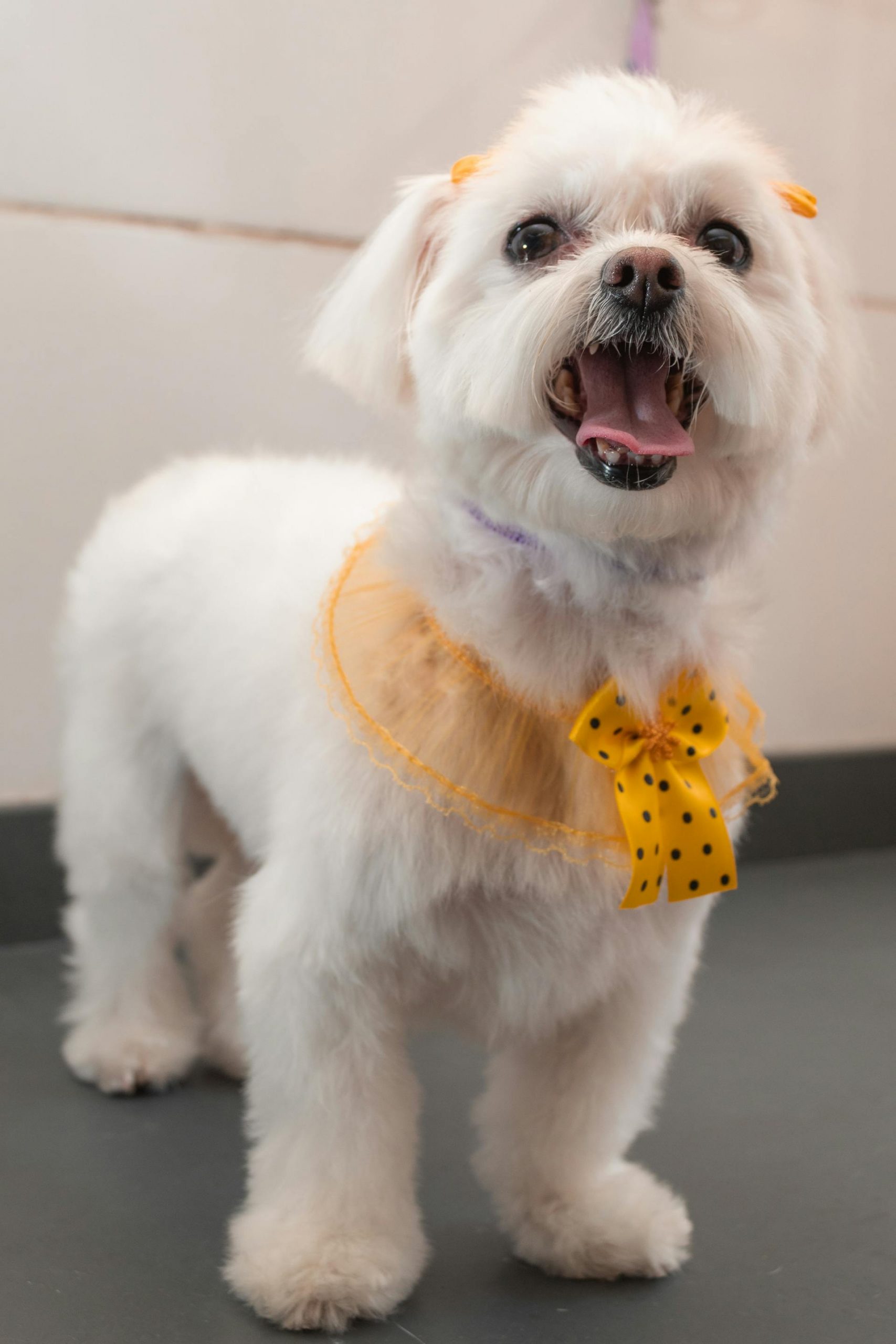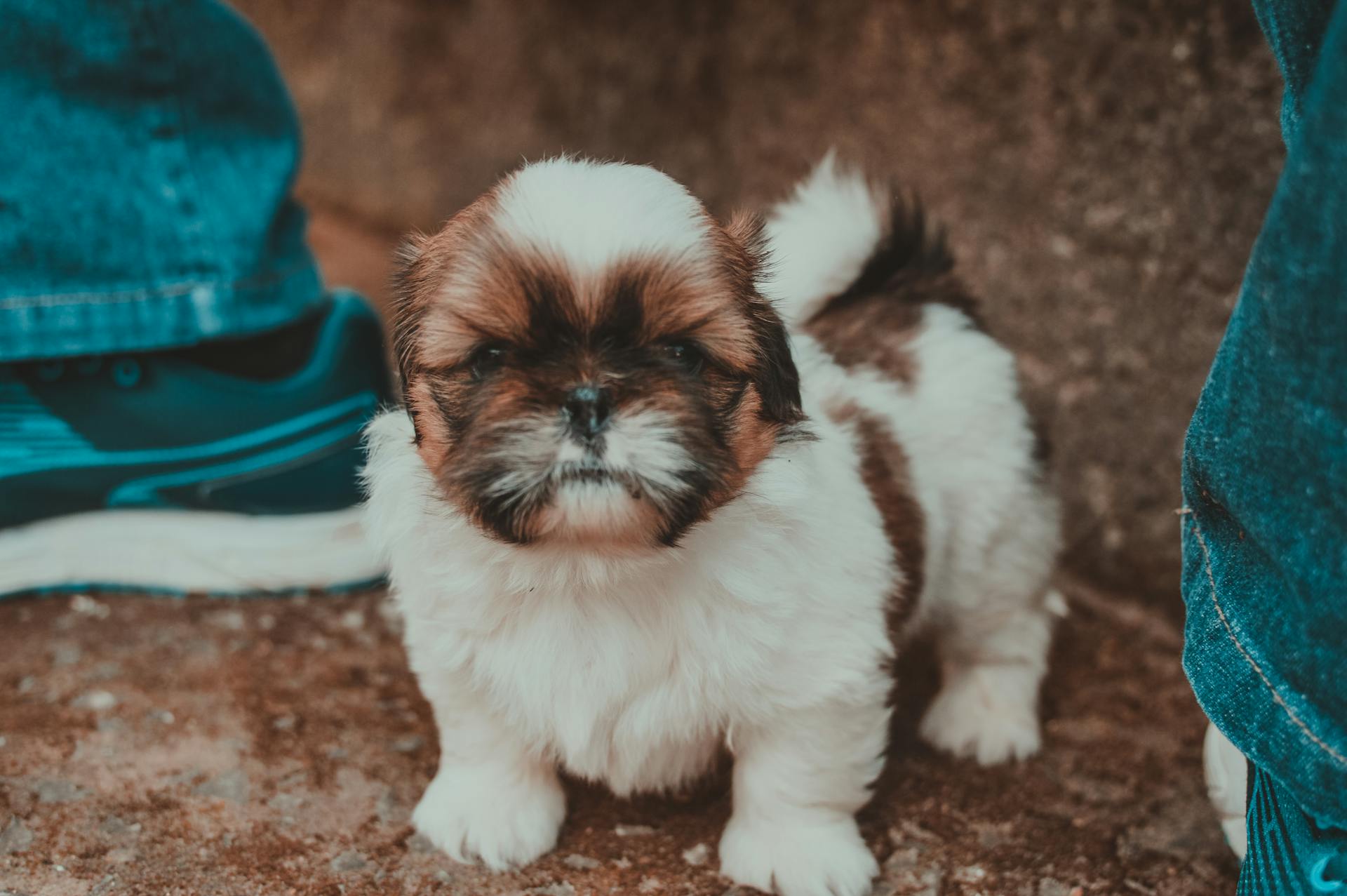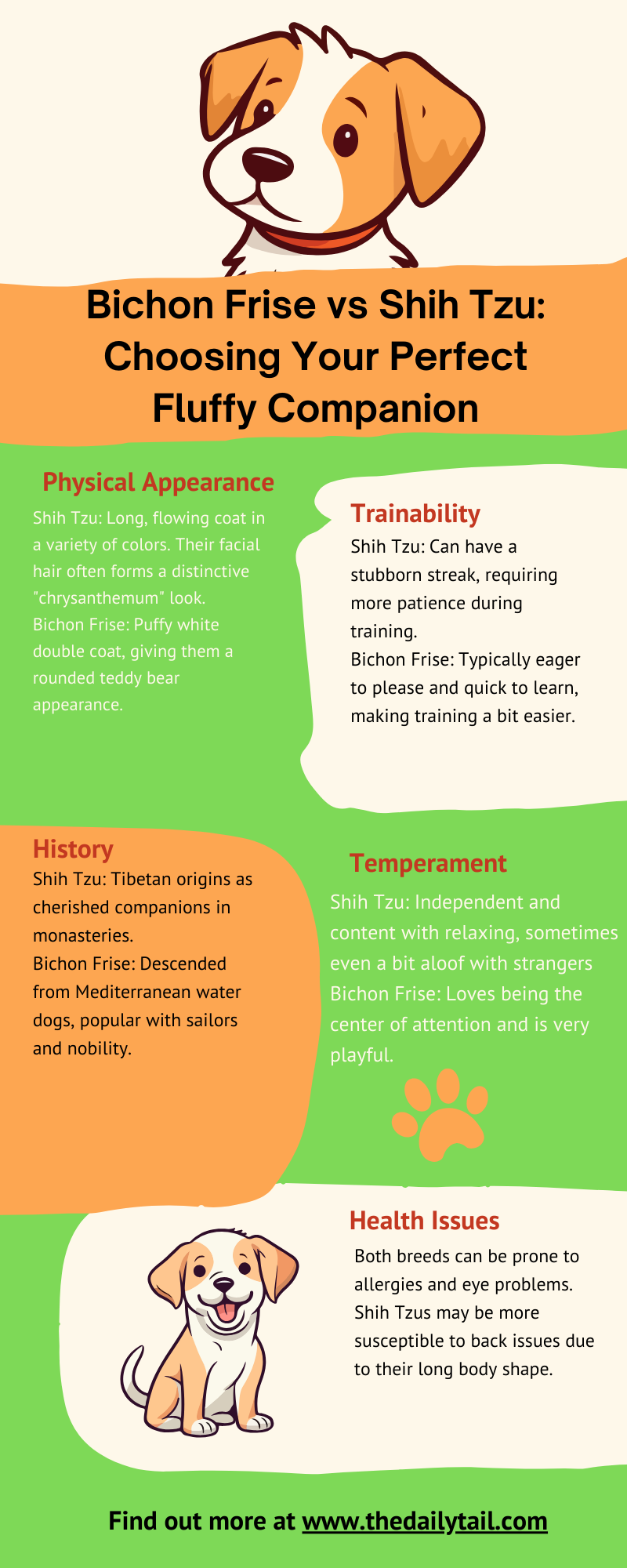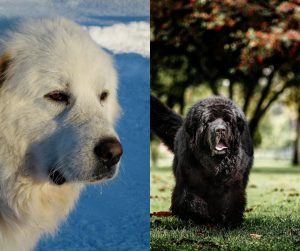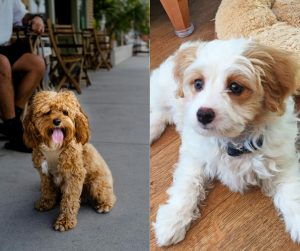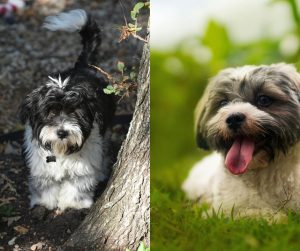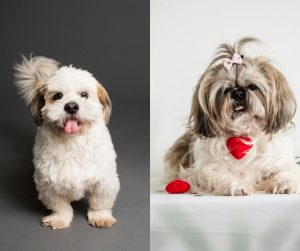As a seasoned dog owner, I’ve always been fascinated by the subtle and not-so-subtle differences between breeds. Two breeds that always leave me pondering are the charming Shih Tzu and the fluffy Bichon Frise. They seem similar at first glance, but their personalities and histories couldn’t be more distinct. Let’s explore together.
When considering a new fluffy addition to the family, the Bichon Frise and Shih Tzu often top the list of contenders. Both breeds boast a historic charm that has captivated the hearts of dog lovers for centuries.
With their small stature and affectionate nature, they fit perfectly in a variety of home environments. Although they share a similar playful disposition, their unique attributes set them apart.
The Bichon Frise is renowned for its cheerful attitude and cotton-ball-like coat, which requires regular grooming to maintain its cloud-like appearance. This breed’s energy and sociability make it an ideal companion for both children and adults.
Conversely, the Shih Tzu, with its luxurious, flowing locks and dignified demeanor, exudes an aristocratic aura, having been a cherished lapdog for ancient Chinese royalty. This breed is typically less demanding in terms of exercise, but its coat does need consistent grooming to prevent tangles.
Each dog breed presents specific health considerations, requires different grooming routines, and brings its own distinctive personality traits, which should be understood to ensure they thrive in their new homes. So, let’s take a deeper look into the Bichon Frise vs Shih Tzu dog breed comparison.
Key Takeaways
- The Bichon Frise and Shih Tzu are both playful, loving breeds ideal for family life
- Proper and regular grooming is essential for both breeds to maintain their distinct coat types
- Understanding each breed’s unique health, personality, and care needs is crucial for their well-being
Origins and History
When diving into the backgrounds of the Bichon Frise and the Shih Tzu breeds, they find rich histories steeped in culture and royalty. These small yet spirited dogs hail from different parts of the world and have charmed their way through history. Both of these dogs are recognized by the American Kennel Club.
Bichon Frise Origins
The Bichon Frise, with its white, fluffy coat and cheerful demeanor, is believed to have roots in the Mediterranean. It is often associated with Spain, where they became favored by nobility. Historically, their presence dates back to the 1300s. The Bichon Frise’s journey through history saw it perform in circuses and warm the laps of French royalty. Nowadays, many people mistake them for the Maltese dog breed. Yet, they are different dogs.
- Country of Origin: Spain
- Approximate Origin Year: 1300 AD
Shih Tzu Origins
The Shih Tzu puppy, known for its long, flowing locks and affectionate nature, is thought to have Tibetan origins. They were highly revered in ancient China, often associated with royalty. The Shih Tzu’s lineage is notably recognized to have connections with Tibet, where they were reportedly kept in royal palaces.
- Country of Origin: China (with a significant Tibetan connection)
- Approximate Origin Year: 618 AD
As both breeds navigated their unique historical paths, they shared a common thread of companionship and luxury, often gracing the laps of the ruling class and capturing hearts with their endearing qualities. It’s no wonder these breeds remain beloved companions today.
Physical Characteristics
When considering a Bichon Frise or a Shih Tzu, their adorable looks might charm anyone, but it’s the differences in their physical traits that potential pet owners should note. These loving companions have distinct features worth knowing about.
Size and Weight
The Bichon Frise is a petite pooch, typically weighing in between 7 to 12 pounds and stands about 9 to 11 inches tall at the shoulder when fully grown.
On the other flank, the Shih Tzu puppy carries a bit more heft, with weights ranging from 9 to 16 pounds and with a height of 9 to 10.5 inches at the shoulder.
Coat and Colors
The coat of a Bichon Frise is often described as a fluffy white cloud, although they can also sport shades of cream and apricot. Their curly hair requires regular grooming to maintain its puff.
Shih Tzus, contrastingly, have a long, flowing coat that comes in a variety of colors including black, white, red, silver, tan, and even chocolate. Both breeds may require frequent grooming to keep their coats neat and tidy.
Ears and Eyes
With their inquisitive, dark eyes, Bichon Frises have an expression that just makes you melt. Their ears hang close to the head, covered in soft, curly fur.
Shih Tzus gaze back with similarly warm eyes, but they’re often peering out from under a topknot of hair, which is a signature of the breed. Their ears also drape down, framing their face with a cascade of luxurious hair.
Bichon Frise vs Shih Tzu Temperament and Personality
When considering a furry addition to the family, it’s important to understand that while the Bichon Frise and Shih Tzu breeds may look similar, they boast distinct personalities. They each have their own version of charm, which shines through their individual temperament and social behaviors.
Behavioral Traits
Bichon Frise dogs are often described as cheerful and playful. They embody a loving and affectionate disposition, which makes them excellent companions.
These small fluffy dogs have moderate energy levels, ensuring they are lively enough to play but won’t require as much exercise as larger, high-energy breeds. The Bichon Frise is also known for being quite quiet, their barking usually reserved for necessary moments.
On the other hand, Shih Tzus are beloved for their friendly and loyal nature. They are deeply affectionate, often seeking the warmth of their owner’s lap.
A Shih Tzu’s personality is generally playful and loving, but they can be a bit more independent compared to the Bichon Frise. While they share a similar playfulness, they tend to have a slightly lower energy level.
Socialization and Interaction
Both breeds score high on socialization.
Bichon Frises tend to be very social with both people and other dogs. They thrive on interaction and can be great in families or with individuals. Proper socialization is essential from a young age to prevent any shy or cautious behavior.
Shih Tzus are also quite sociable creatures, often enjoying the company of other pets and their human family members.
Their history as lap dogs means they crave that interaction and can be quite content in a variety of social situations. A well-socialized Shih Tzu is usually very agreeable and accommodating.
While neither breed has a strong prey drive, their sociability does not always extend to smaller pets. Focused training and socializing can help manage their instincts and promote peaceful interactions.
Health and Longevity
When comparing the Bichon Frise and the Shih Tzu, prospective dog owners should note that each breed has distinct health concerns and life expectancies. They share similarities in some common health issues, but understanding the specifics can help in managing their well-being and ensuring they live a full life.
Common Health Issues
The Bichon Frise and Shih Tzu breeds both have a tendency for certain hereditary health problems. One should be aware that these adorable dogs might be predisposed to the following:
- Allergies: Skin and food sensitivities can be common, requiring careful dietary and environmental management
- Hip Dysplasia: This joint condition can affect both Bichon Frises and Shih Tzus, leading to mobility challenges
- Patellar Luxation: A knee issue where the kneecap dislocates, often seen in smaller dog breeds
- Bladder Stones: Monitoring for urinary issues is important as both can develop stones
- Ear Infections: Their floppy ears can trap moisture and lead to infections, so regular cleaning is a must
Bichon Frises can be prone to additional health problems such as ligament issues, while Shih Tzus may face concerns like dry eye and hernias.
Life Expectancy
In terms of lifespan, there’s a little variance between the two:
- Bichon Frise: On average, they may live around 15 years. Their longevity is usually a result of robust overall health, yet it can be affected by their common health problems
- Shih Tzu: These dogs typically enjoy lifespans ranging from 10 to 18 years. This broad range indicates that while some may live exceptionally long lives, others might face health challenges that can impact their longevity
Care and Maintenance
Selecting between a Bichon Frise vs Shih Tzu is not just about their adorable appearances; it’s also about understanding their distinct care and maintenance needs. Both breeds have particular grooming requirements and thrive with regular exercise tailored to their energy levels.
Grooming Needs
Bichon Frise: These fluffy companions have a coat that’s soft and curly, resembling a cotton ball. To prevent matting and tangles, owners should brush their Bichon Frise at least two to three times a week.
Monthly bathing keeps their white coat pristine, but they’ll also require professional grooming approximately every four to six weeks to maintain their shape.
- Brushing: Frequent, to prevent tangles
- Bathing: Monthly
- Professional Grooming: Every 4-6 weeks
Shih Tzu: This breed’s long, flowing coat is stunning, but it requires daily brushing to stay silky.
Their eyes are particularly prone to irritation, so regular face washing and hair trimming are needed.
Shih Tzus can be kept in a “puppy cut” or a long coat, but both styles need ongoing care to avoid dirt buildup.
- Brushing: Daily, to avoid knots and maintain shine
- Face Washing: Regularly, to prevent irritation
- Haircuts: Frequent trims, or maintenance of a puppy cut
Exercise and Activity Requirements
Bichon Frise: Don’t let their size fool you; Bichons have a playful spirit and moderate energy level. They love short walks and thrive in agility exercises.
- Exercise Needs: Daily walks, enjoys agility
- Best Living Conditions: Adaptable, great for apartments
Their size makes them suitable for apartment living, but they do require daily playtime to keep them happy and healthy.
Shih Tzu: Shih Tzus carry themselves with a noble demeanor, but they’re not overly active. Short daily walks and play sessions fit their exercise needs.
- Exercise Needs: Short, regular walks, playtime
- Best Living Conditions: Apartments, small living spaces
They also adapt well to living in apartments due to their lower energy level but appreciate the occasional game to keep them engaged.
Living Environment
Both the Bichon Frise and Shih Tzu dog breeds adapt well to various living environments, each with a fondness for indoor life that makes them ideal companions for apartment living.
Adaptation to Home Life
Bichon Frise: They are known for their adaptability. Their small size often makes them suited for apartment living, where they can comfortably navigate smaller spaces.
- Indoor Activity: Enjoys playtime and is relatively active indoors
- Separation Anxiety: Can experience separation anxiety, so regular interaction is important
- Watchdog Capabilities: Makes a good watchdog, alerting their owners of visitors with a hearty bark
Shih Tzu: These little dogs are also well-suited for an indoor lifestyle.
- Apartment Friendly: Their small stature is perfect for apartments, thriving in cozy settings
- Guard Dog: While not a traditional guard dog, they can be protective of their family, providing alert barks as needed
- Interaction Needs: Shih Tzus crave companionship and do not like being alone for long periods, which can lead to separation anxiety
Both breeds benefit greatly from loving interaction and do not enjoy being left alone for extended times. With their outgoing and pleasant natures, Bichon Frises and Shih Tzus light up the home environment, making every day a little brighter for their families.
Bichon Frise vs Shih Tzu Training and Intelligence
When looking at Bichon Frise dogs and Shih Tzu dogs, both breeds come with their own unique set of traits concerning how they learn and interact during training. Each has varying energy levels, intelligence, and trainability that can greatly influence their behavior and the approach needed for effective training.
Trainability
Bichon Frise
- Ease of Training: They are generally eager to please, which makes them quite responsive to training. Although sometimes they can be a bit stubborn, consistency and positive reinforcement tactics work well
- Separation Anxiety: Bichon Frises often form strong bonds with their owners and may experience separation anxiety. Training from a young age to cope with being alone is crucial
- Energy Levels: High energy levels mean they need both mental and physical stimulation to stay happy, which can be incorporated into training routines
Shih Tzu
- Ease of Training: They may not be as eager to please as Bichons and can show an independent streak. Patience and creativity in training sessions are needed
- Separation Anxiety: Less prone to separation anxiety compared to Bichon Frises, yet they still appreciate companionship
- Energy Levels: They’re more laid-back than Bichons, so training sessions should be short and fun to keep them engaged
Intelligence and Learning
Bichon Frise
- Intelligence: They are clever little dogs and learn commands relatively quickly, especially when training sessions are made into a game
- Prey Drive and Barking: They have a moderate prey drive and may bark at unfamiliar sounds or sights, which should be managed during training
Shih Tzu
- Intelligence: Intelligence is average, but they often have a mind of their own, making consistent training essential
- Prey Drive and Barking: They have a low prey drive and are not typically known for excessive barking
Breed Comparisons
While both are small, affectionate companions, choosing between the charming Shih Tzu and the cheerful Bichon Frise comes down to understanding their unique personalities and needs. Let’s explore what sets these fluffy sweethearts apart!
As a prospective dog owner, you should look at personality, size, and coat maintenance. These are crucial factors that help future owners decide what pup suits their lifestyle best.
Bichon Frise vs. Shih Tzu
Size:
- Bichon Frise: typically 7-12 pounds, 9-11 inches tall at the shoulder
- Shih Tzu: usually 9-16 pounds, 9-10 inches tall at the shoulder
Temperament:
- Bichon Frise: Known for their affectionate and cheerful personalities; they thrive on human interaction and love being part of the family
- Shih Tzu: These dogs possess a friendly nature, are especially good with children, and generally get along well with other pets
Coat:
- Bichon Frise: Boasts a white coat that may have shades of cream or apricot, known for being fluffy but requires regular grooming
- Shih Tzu: Their coat comes in various colors and is luxurious, needing daily brushing to prevent tangles
Mixed Breeds
Shichon/Zuchon (Shih Tzu Bichon Mix):
- Hybrid Vigor: Mixed breeds can sometimes benefit from hybrid vigor. This results in a potentially healthier and more adaptable pup
- Personality: Often retains the friendliness common to both breeds, making them great companions
- Appearance: Typically small like their parents, with a fluffy coat that could range in color. Their coat will require consistent grooming
Each dog’s personality and needs can vary. So, interacting with the puppy or understanding its lineage is beneficial when considering a mixed breed like a Shichon.

